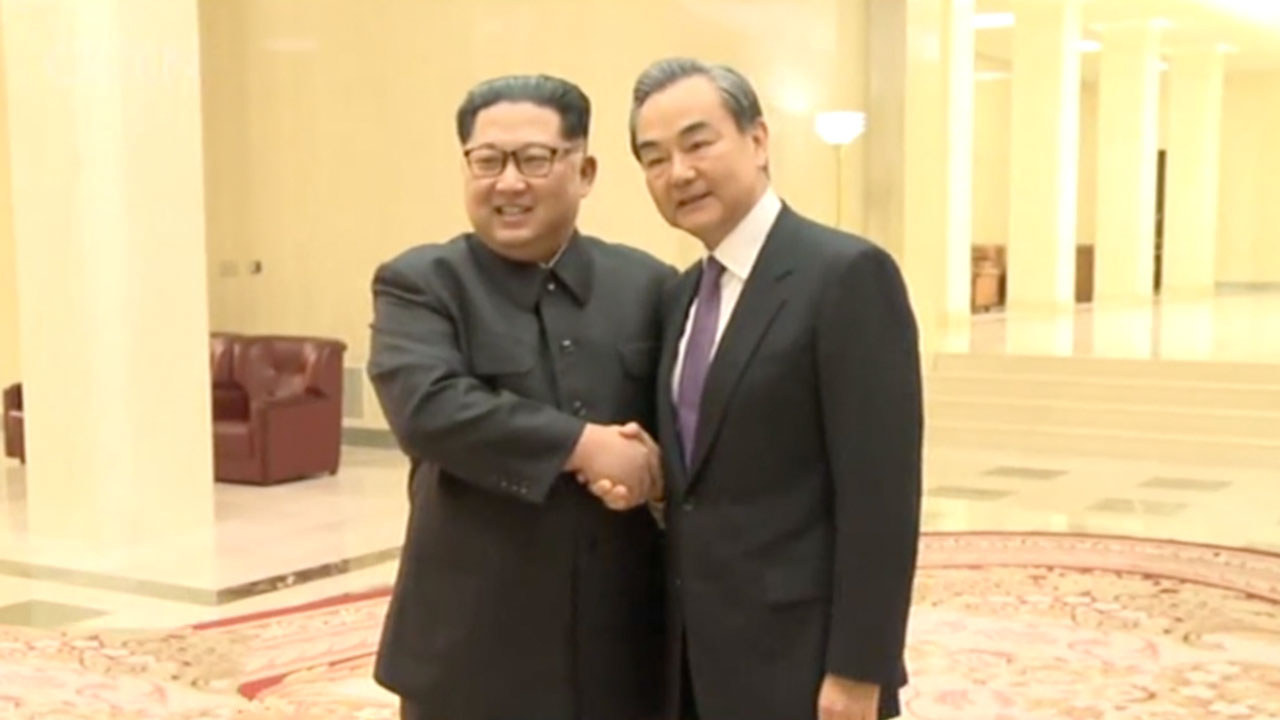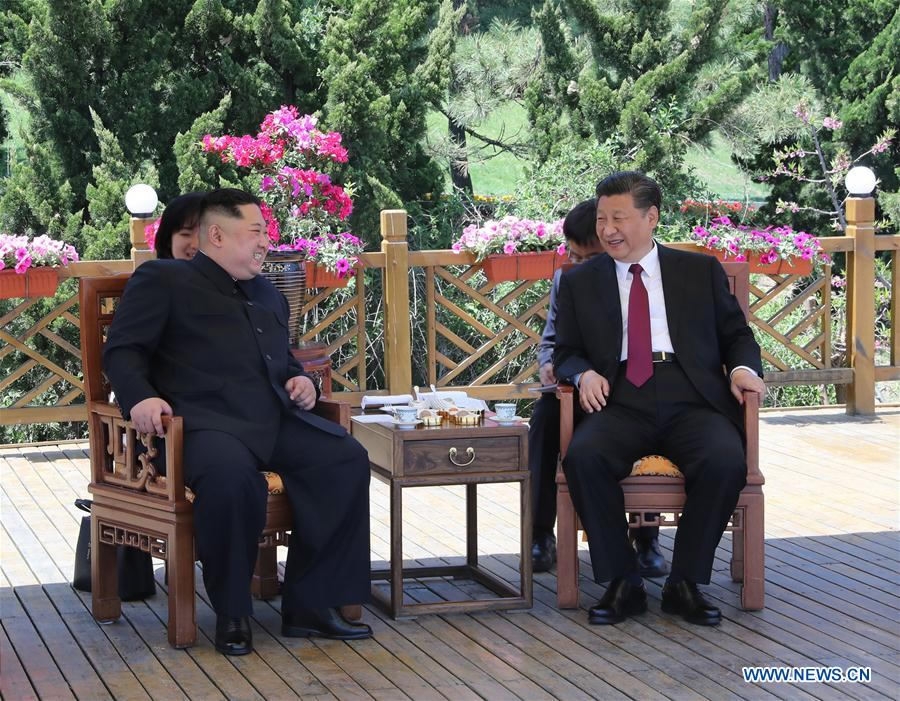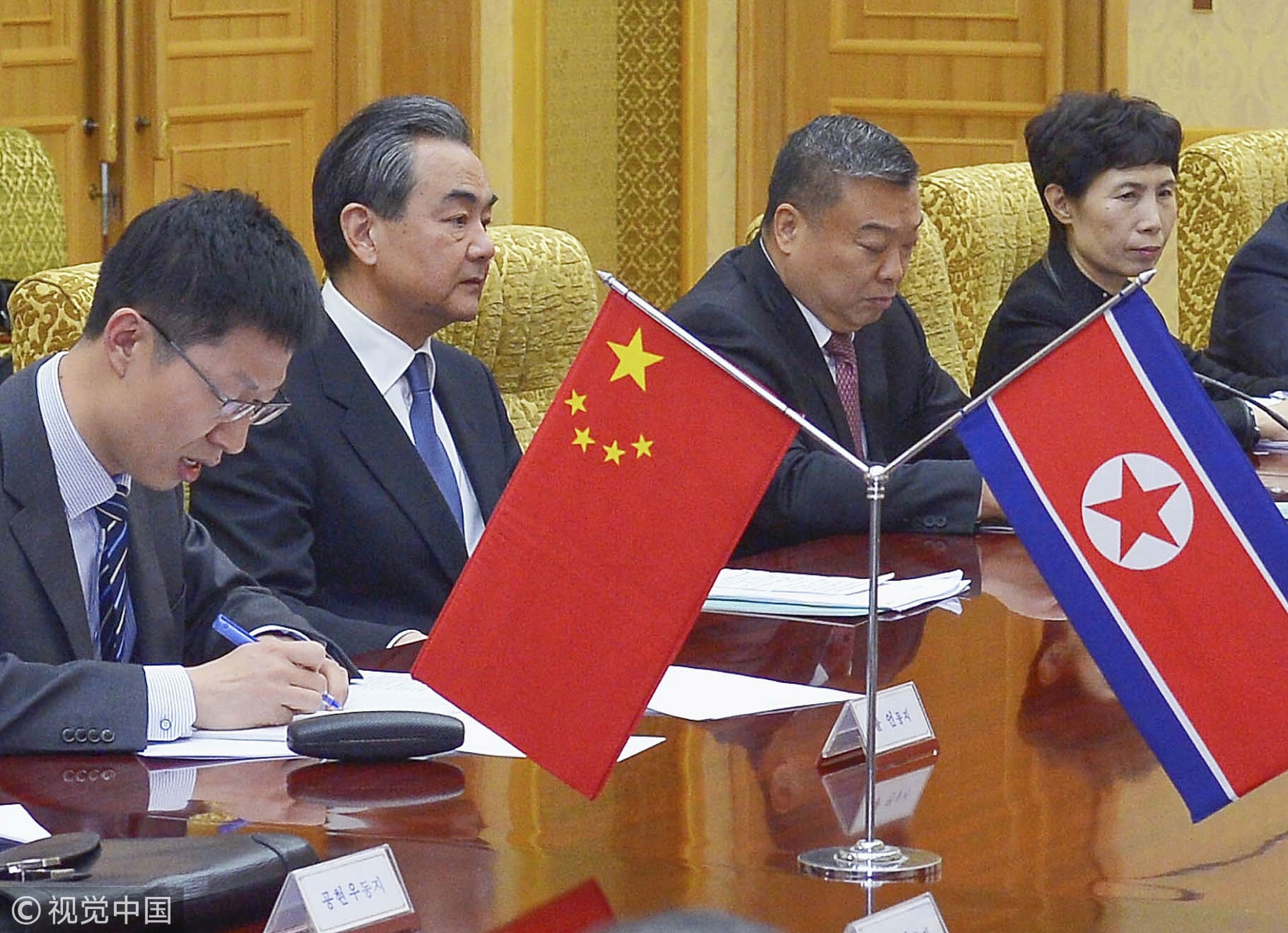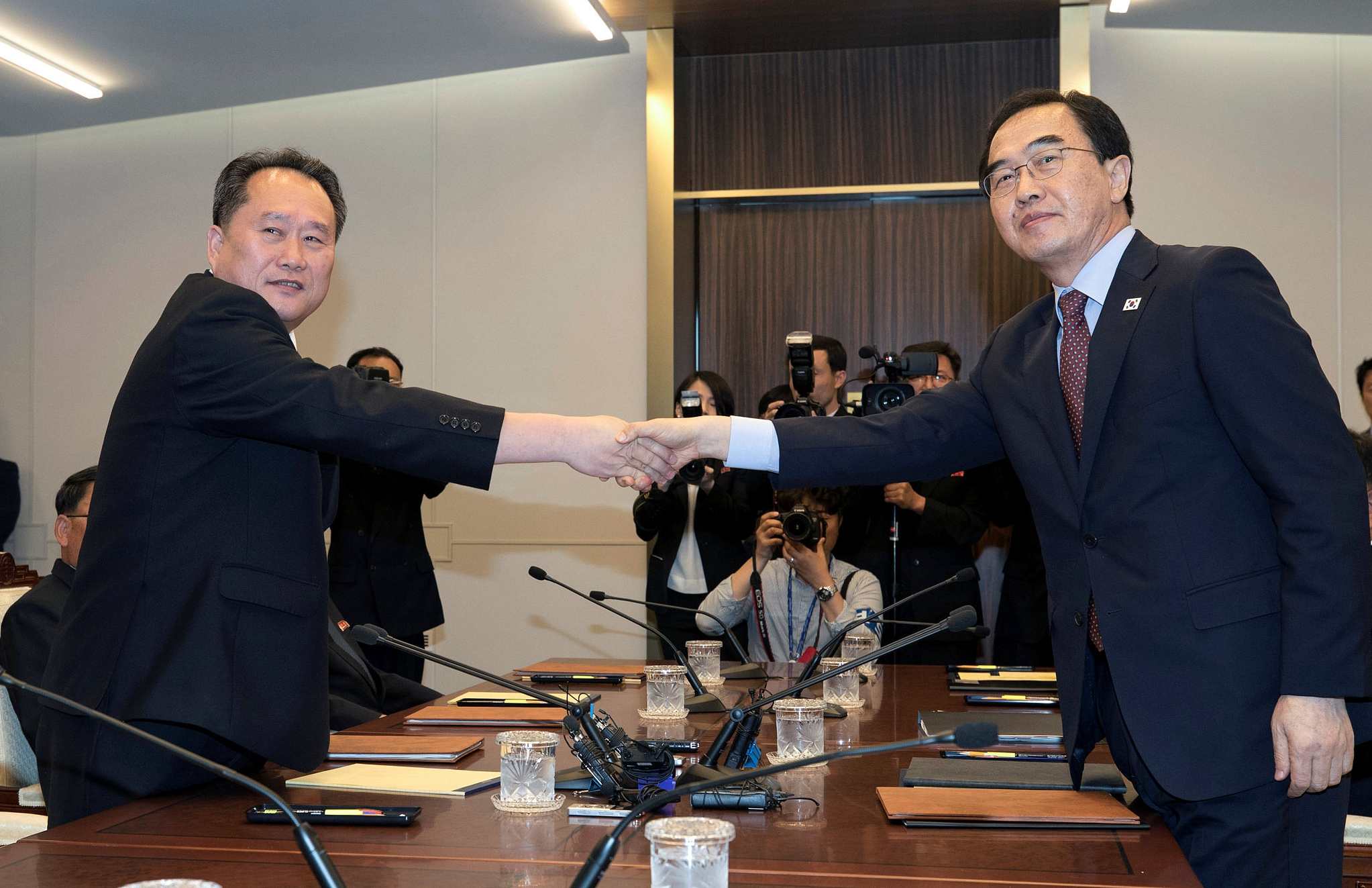03:10

China has played an important role in the pursuit of peace on the Korean Peninsula. To keep the momentum going, it has called on all relevant parties to cherish the obstacles overcome so far.
Twice over the course of several weeks, Chinese President Xi Jinping held talks with Kim Jong Un—leader of the Democratic People’s Republic of Korea.
They discussed working toward a political resolution to the peninsula nuclear issue, showing that China is playing an important role in the situation.
Professor Gao Hong from Chinese Academy of Social Sciences said that back to the time of the six-party talks, China played an active part.

Xi Jinping (R), general secretary of the Central Committee of the Communist Party of China (CPC) and Chinese president, holds talks with Kim Jong Un, chairman of the Workers' Party of Korea (WPK) and chairman of the State Affairs Commission of the Democratic People's Republic of Korea (DPRK), in Dalian, northeast China's Liaoning Province, on May 7-8. /Xinhua Photo
Xi Jinping (R), general secretary of the Central Committee of the Communist Party of China (CPC) and Chinese president, holds talks with Kim Jong Un, chairman of the Workers' Party of Korea (WPK) and chairman of the State Affairs Commission of the Democratic People's Republic of Korea (DPRK), in Dalian, northeast China's Liaoning Province, on May 7-8. /Xinhua Photo
“Its basic standpoint was promoting dialogue, instead of confrontation. This has never changed although the six-party mechanism was hampered in recent years,” Gao said.
Starting in 2003, the six-party talks were suspended in 2008, and then the DPRK backed out of talks in 2009 in protest against UN sanctions.
After many ups and downs in the years that followed, the expectations are high for the meeting between DPRK leader Kim Jong Un and US President Donald Trump in Singapore.
Zha Daojiong, a professor of International Studies at China’s Peking University, said the outcome of the meeting will soon be revealed, but the final process of denuclearization will take a long time to be achieved by all relevant parties.
Zha believes that it’s more practical to think about how all sides can move forward, rather than dwelling on the dramatic nature.

Chinese Foreign Minister Wang Yi (2nd from L) attends a meeting with DPRK Foreign Minister Ri Yong Ho in Pyongyang on May 2, 2018. /VCG Photo
Chinese Foreign Minister Wang Yi (2nd from L) attends a meeting with DPRK Foreign Minister Ri Yong Ho in Pyongyang on May 2, 2018. /VCG Photo
To achieve peace on the peninsula, China now has made two proposals.
One is called “suspension-for-suspension.” This involves the suspension of the DPRK’s nuclear and missile activities, and the suspension of joint military exercises by the US and Republic of Korea (ROK).
Another proposal is “dual-track”—a call for denuclearization, while establishing protocols to achieve peace, and preserve it.
Rong Ying, vice president of China Institute of International Studies said that the proposals play important roles to achieve peace through dialogues, and they have been recognized by the parties involved, including the DPRK, ROK, Japan and the US.
The US took credit for the DPRK’s recent offer to denuclearize—announced at the Panmunjom talks at the end of April. But, Washington also vowed to maintain pressure on the DPRK, until complete denuclearization is achieved.

June 1, 2018: Ri Son Gwon, chairman of the Committee for the Peaceful Reunification of the DPRK, shakes hands with ROK's Unification Minister Cho Myoung-gyon after their meeting at the truce village of Panmunjom. /VCG Photo
June 1, 2018: Ri Son Gwon, chairman of the Committee for the Peaceful Reunification of the DPRK, shakes hands with ROK's Unification Minister Cho Myoung-gyon after their meeting at the truce village of Panmunjom. /VCG Photo
China said this hard-won situation needs a different approach, and encourages the DPRK and the US to show further sincerity.
The Chinese Foreign Ministry welcomes the meeting between the leaders of the US and the DPRK in Singapore, saying that China hopes the two sides will continue to strengthen dialogue, improve relations, and play a positive role in promoting the denuclearization of the Korean Peninsula.
From the six-party talks until now, China has been never wavered in its efforts to achieve peace.
This was also seen during the trilateral leaders' meeting in May, as Chinese Premier Li Keqiang worked alongside his Japanese and South Korean counterparts to keep momentum going in a positive direction.
As Beijing said, all parties involved should take the opportunity to achieve long-term peace on the Peninsula.





